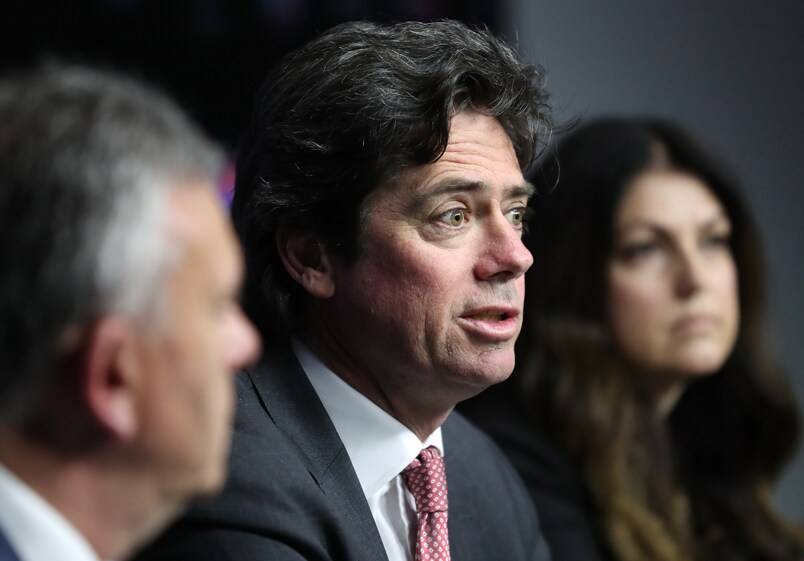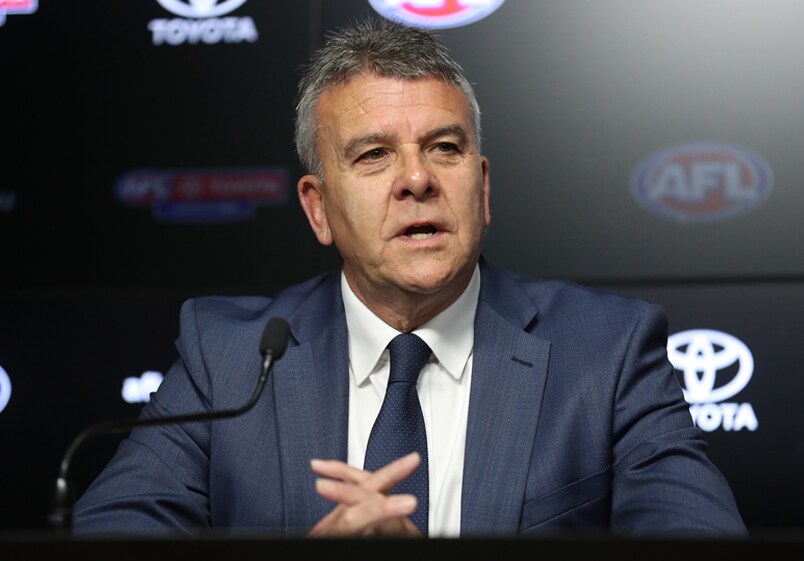The AFL has formed a "game-changing" charity partnership with Lifeline Australia as part of its campaign to tackle the scourge of mental health issues.
The League will kickstart the relationship by providing Lifeline with a one-off donation of $300,000, which the national crisis support network will channel into recruiting and training volunteers, extending its services and improving its overall ability to help those in need.
The AFL is also open to the prospect of holding a designated Mental Health Round at some stage in the future, although it has been ruled out for next season.
Mental health is one of the biggest issues in the AFL, with affected players including Collingwood stars Dayne Beams and Adam Treloar, Saint-turned Cat Jack Steven, Western Bulldog Lin Jong and recently retired former teammate Tom Boyd.
In August, to address the snowballing problem in the broader football industry, the AFL appointed clinical psychologist Dr Kate Hall as the League's head of mental health and wellbeing, and Dr Ranjit Menon as its chief psychiatrist.
In announcing the partnership on Thursday, AFL chief Gillon McLachlan said the mental health and wellbeing of everyone involved in the game was "a growing focus" for the League.
"We are continuing to work as an industry to ensure we have the best processes and mental healthcare in place for our players, coaches and umpires in our elite competition and there is much work to be done," McLachlan said.
"Through the leadership of Dr Kate Hall and Dr Ranjit Menon, we are also working on wellbeing initiatives for players and umpires in our pathway programs, administrators across the AFL and AFL clubs, and participants and volunteers at the community level.
"This isn't just essential for our game, it's essential to enhance the wellbeing of the wider community."

AFL CEO Gillon McLachlan says the new partnership with Lifeline is bigger than the game. (Image: AFL Photos)
Dr Hall described the alliance with Lifeline as "an important partnership for the AFL".
"Our football communities are impacted by mental health and suicide, and the AFL is part of this critical societal issue. Responding to mental health issues and doing more to prevent the onset of mental health issues in young Australians is everyone's responsibility," Dr Hall said.
"Through our support of Lifeline, we want to reduce the stigma of mental health issues and promote mental health and wellbeing for football communities.
"The AFL, together with the AFLPA (players' association), has a responsibility to transform the management of mental health and wellbeing across the whole industry, and to move towards best practice in mental health prevention and early intervention."
Lifeline Australia's CEO Colin Seery praised the AFL's holistic approach to the issue as "a positive step in the right direction".
"The AFL's decision to truly commit to the outcomes of the partnership by encompassing club, community engagement, education and, importantly, fundraising across the Lifeline network will make this partnership a game-changer."

Lifeline Australia CEO Colin Seery addresses the media on Thursday. (Image: AFL Photos)
Lifeline has joined the Children's Cancer Foundation and FightMND as the AFL's official charity partners.
About Lifeline
Lifeline is a national charity providing all Australians experiencing a personal crisis with access to 24-hour crisis support and suicide prevention services.
Somewhere in Australia there is a new call to Lifeline every minute.
People call Lifeline's crisis line – 13 11 14 – about issues including suicidal thoughts or attempts, personal crisis, anxiety, depression, loneliness, abuse and trauma, stresses from work, family or society, and for self-help information for friends and family.
Lifeline is a national charity and relies on community support. Donate online now or call 1800 800 768.
For crisis or suicide prevention support, please call Lifeline on 13 11 14 or visit www.lifeline.org.au/gethelp.



